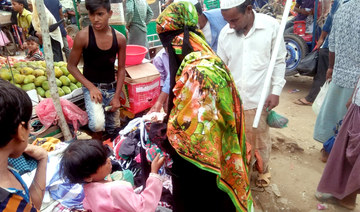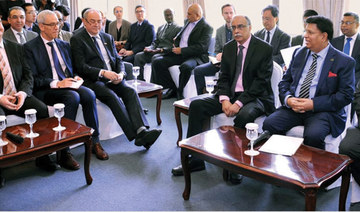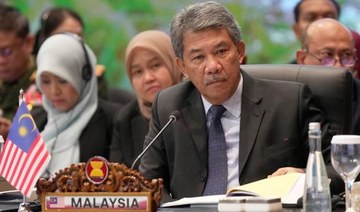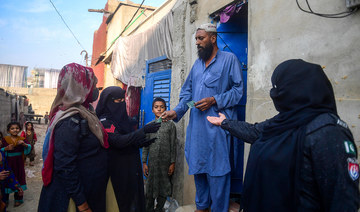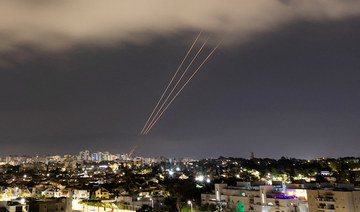UNITED NATIONS: An independent review of United Nations operations in the years before hundreds of thousands of Rohingya Muslims fled a violent crackdown by Myanmar’s military concluded that the organization’s many bodies failed to act together, resulting in “systemic and structural failures.”
The 36-page review by Gert Rosenthal, Guatemala’s former foreign minister, released Monday said the UN could conceivably have reconciled competing views on whether quiet diplomacy or outspoken advocacy against human rights abuses in Myanmar should have been used — but it didn’t.
The result — as in Sri Lanka at the end of the civil war against Tamil separatists in 2009 — was a “dysfunctional performance of the UN system,” Rosenthal said.
“Without question serious errors were committed and opportunities were lost in the UN system following a fragmented strategy rather than a common plan of action,” he said, adding that the “systemic failure was further magnified by some bureaucratic and unseemly infighting.”
The long-simmering crisis exploded in August 2017 when Myanmar’s military launched what it called a clearance campaign in northern Rakhine State in response to an attack by a Rohingya insurgent group. The campaign forced more than 720,000 Rohingya to flee to neighboring Bangladesh and led to accusations that security forces committed mass rapes, killings and burned thousands of homes.
Rosenthal said the key lesson is “to foster an environment encouraging different entities of the UN system to work together.”
On a more optimistic note, he said since UN Secretary-General Antonio Guterres took office at the start of 2017, “there appears to be renewed recognition of the crucial importance of improved coordination.”
UN spokesman Stephane Dujarric said Guterres, who commissioned the report, has accepted all of its recommendations “and is committed to implementing them.”
“The secretary-general is very grateful to Mr. Rosenthal for producing a candid, forthright and very useful report,” he said.
The review covers the UN involvement in Myanmar since 2010, when the at the time military-fueled nation moved started opening up to the outside world, eventually leading to elections and moves toward a more open, market-oriented economy.
Rosenthal said “for all these positive tendencies with their ups and downs over time,” Myanmar also engaged in “long-festering discriminatory treatment against minorities” for decades, most especially the Rohingya.
Buddhist-majority Myanmar has long considered the Rohingya to be “Bengalis” from Bangladesh even though their families have lived in the country for generations. Nearly all have been denied citizenship since 1982, effectively rendering them stateless, and they are also denied freedom of movement and other basic rights.
In his conclusions and recommendations, Rosenthal said Myanmar’s government is mainly responsible for the grave abuses against the Rohingya.
He said the UN system “has been relatively impotent to effectively work with the authorities of Myanmar to reverse the negative trends in the area of human rights and consolidate the positive trends in other areas.”
He also noted “increasing criticism regarding the lack of leadership displayed by Aung San Suu Kyi,” the government’s de facto leader, “as well as her unwillingness to take distance from the military.”
Although the UN’s systematic failures are not down to any single entity or any individuals, Rosenthal said, “clearly there is a shared responsibility on the part of all parties involved in not having been able to accompany the government’s political process with constructive actions, while at the same time conveying more forcefully the United Nations’ principled concerns regarding grave human rights violations.”
Rosenthal said the UN Security Council as the world body’s most powerful organization should also bear some responsibility because its divisions failed to provide support to the UN Secretariat “when such backing was and continues to be essential.”
The Secretariat “would have benefited enormously” from Security Council support for an impartial UN observer presence in Rakhine state “to deter the use of violence in general,” he said.
He said the UN, which has multiple ways to engage its 193 member states, could find ways “to criticize and prod governments that engage in serious violations of international law while at the same time cooperating with them in delivering humanitarian and development assistance.”
“This would be the highly desirable objective to address the obvious dysfunctional performance of the UN system observed in both Sri Lanka and Myanmar,” he said.
But Rosenthal said “recent experience, precisely in both countries, has gone in the opposite direction, with mindsets and specific actions” competing rather than complementing each other.
Louis Charbonneau, UN director at Human Rights Watch, said the United Nations failed to keep its promise of “never again” to mass atrocities after the wartime deaths of tens of thousands of civilians in Sri Lanka.
“If the UN leadership is determined to change its internal culture, it needs to hold UN officials most responsible for ignoring ethnic cleansing in Myanmar accountable for their inaction,” he said.
UN failed before Rohingya crackdown in Myanmar: Expert
UN failed before Rohingya crackdown in Myanmar: Expert
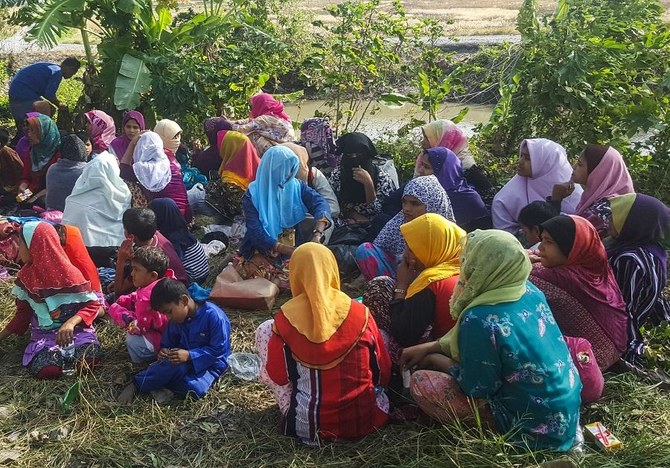
- An expert said said the UN could conceivably have reconciled competing views on whether quiet diplomacy or outspoken advocacy against human rights abuses in Myanmar should have been used, but it didn't
- The result was a “dysfunctional performance of the UN system”
Indonesian coffee takes lead in Egyptian market
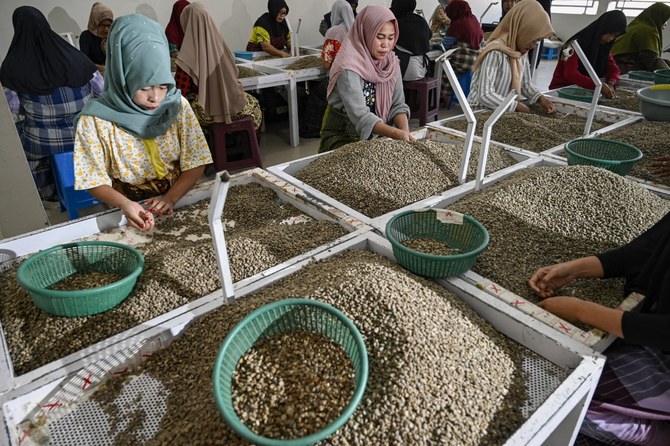
- Indonesia is the world’s 4th-largest coffee producer and Asia’s second-biggest
- Egypt was second-biggest export destination for Indonesian coffee in 2023, behind the US
JAKARTA: Indonesia has become Egypt’s main source of coffee, authorities said on Tuesday, as annual exports reached nearly $93 million, or about 43 percent of the market.
Indonesia is the world’s fourth-largest coffee producer and Asia’s second-biggest. In 2023, the Southeast Asian nation exported around 276,000 metric tons of the commodity worth almost $916 million, according to the Central Statistics Agency.
Egypt was the second-biggest export destination for Indonesian coffee, just behind the US, accounting for about 5.2 percent of the country’s total coffee exports.
“Indonesian coffee has successfully dominated the Egyptian market. Total export value reached $92.96 million, making Indonesia the biggest coffee-exporting country to Egypt in 2023,” Indonesian Ambassador in Cairo Lutfi Rauf said in a statement.
“This shows how Indonesian coffee products are loved by Egyptian consumers. The unique aroma and flavor are the main factors attracting consumers from Egypt.”
Indonesian officials held an annual meeting with Egyptian coffee buyers in Damanhour over the weekend, as they seek to foster good trade relations.
“We hope to continue and to improve trade relations. If there are any challenges, everything can be discussed well for the prosperity and welfare of the people of both countries,” Rauf said.
Indonesian officials have been increasing trade engagement with Egypt as a gateway for exports to other African countries in recent years, while Indonesian coffee producers are seeking to further their exports to the Middle East amid rising interest from the region.
Hariyanto, a coffee exporter from East Java province, said promotion efforts by the Indonesian Embassy in Cairo have helped boost the popularity of Indonesian coffee in Egypt.
“Egypt is a great market, and now there is a high demand for Indonesian-origin coffee products,” Hariyanto, a coffee exporter from East Java province, told Arab News.
“Egyptians found a match in Indonesian-origin coffee, as there is a good fit in terms of price and taste.”
UK MPs vote down plan to protect Afghan ‘heroes’ from deportation
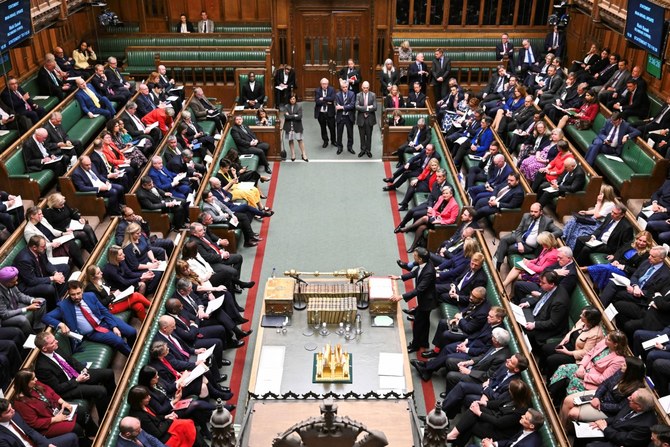
- 10B amendment seeks to exclude Afghan veterans from removal to Rwanda
- Top military officials warn of ‘grave damage to our ability to recruit local allies in future military operations’
London: Conservative MPs in the UK have voted against a plan to prevent Afghan veterans who served alongside British soldiers from facing deportation to Rwanda.
An amendment to the controversial Rwanda bill was overturned by 312 votes to 253 on Monday, in a rejection of plans to exempt agents, allies and employees of the UK from being deported to the African country, The Independent reported.
The House of Lords’ amendment 10B is part of the larger bill, which seeks the deportation of illegal migrants to Rwanda.
Several amendments set in the House of Lords have sought to prevent Afghan veterans who fought alongside the British military in the decade-long war from being included in deportation orders.
The 10B amendment included people eligible to enter the UK under the Afghan Relocations and Assistance Policy, which supports Afghans who helped the British campaign in their country and who are at risk under the Taliban government.
After the vote, the Rwanda bill will now return to the House of Lords for new scrutiny.
UK Prime Minister Rishi Sunak had told Conservative MPs to vote against all amendments to the bill, including 10B.
The move to exclude Afghan veterans from potential deportation to Rwanda has received support from the highest levels of Britain’s military establishment.
Thirteen senior military officials, two former chiefs of defense staff, a former defense secretary and a former UK ambassador to the US have supported the amendment.
The Sunday Telegraph carried a letter from top military officials ahead of Monday’s vote. They warned that a rejection of the amendment would cause “grave damage to our ability to recruit local allies in future military operations.”
The letter added: “It is essential that those who have made it to British shores are not unduly punished by being removed to Rwanda when the government’s scheme is up and running.”
India’s Lok Sabha election 2024: What you need to know
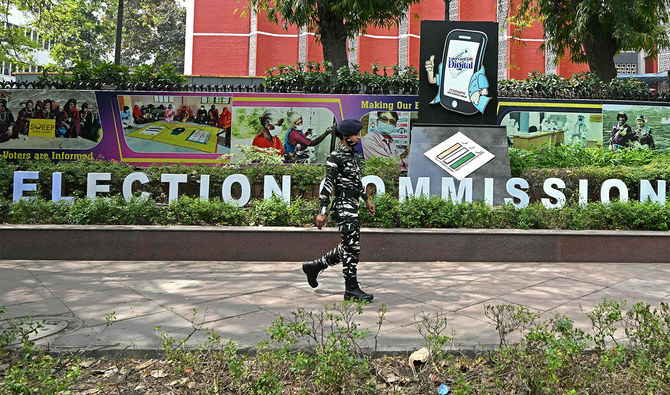
- India is holding the world’s biggest election starting this month, with nearly one billion people eligible to vote
- Votes to be counted on June 4 after polling done on April 19, April 26, May 7, May 13, May 20, May 25, June 1
India is holding the world’s biggest election starting this month, with nearly 1 billion people eligible to vote and Prime Minister Narendra Modi in the pole position.
WHAT IS IT?
Elections to the 543 contested seats in the lower house of parliament, called the Lok Sabha, for a term of five years. To rule, a party or a coalition needs a simple majority of 272 seats. Prime Minister Narendra Modi’s Bharatiya Janata Party (BJP) won 303 seats the last time, followed by 52 for the main opposition Indian National Congress (INC).
In addition to the contested seats, India’s president can nominate up to two Anglo-Indians to the Lok Sabha.
The Bharatiya Janata Party, BJP, won 303 seats in 2019 general election. The second largest party, the Indian National Congress, INC, won 52 seats. The Dravida Munnetra Kazhagam, DMK, emerged as the third largest party.
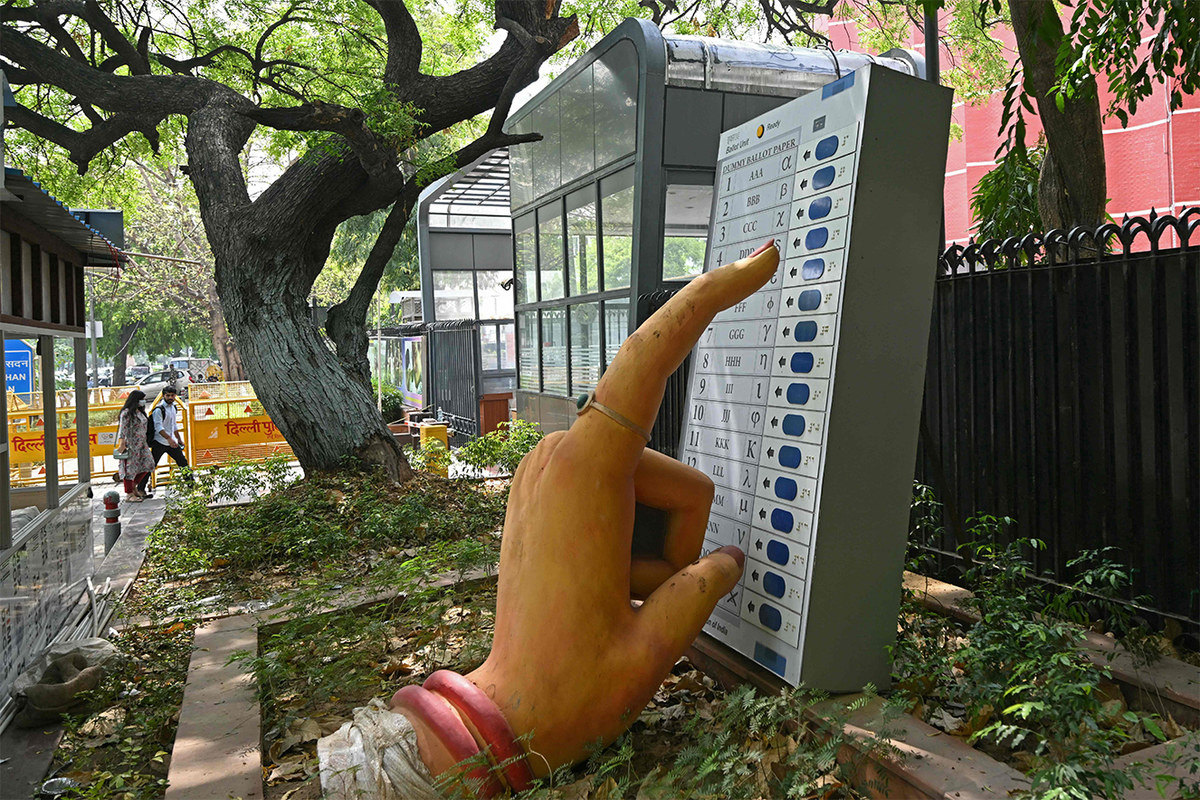
WHERE AND WHEN IS IT TAKING PLACE?
The elections will be conducted in seven phases partly to ensure sufficient security at polling booths across the vast country. Voters can make their choice by pressing a button on an electronic voting machine, first used in India in 1982 and more widely since the early 2000s.
Votes will be counted on June 4 after polling is done on April 19, April 26, May 7, May 13, May 20, May 25 and June 1.
The elections in the world’s largest democracy for 543 seats will be held in 7 phases.
HOW DOES IT WORK?
The world’s most populous nation follows the first-past-the-post system, where voters cast a vote for a single candidate in a constituency and the candidate with the most votes wins the seat. The voting age is 18 years and contestants need to be at least 25 years old.
A total of 968 million voters are registered, out of which 497 million are men and 471 million are women. A higher percentage of women voters than men are likely to vote for the second time in a row.
WHO ARE THE MAIN CANDIDATES?
Modi headlines the race, followed by his de facto deputy Amit Shah and the main opposition face, Rahul Gandhi of the Congress party. Gandhi’s mother Sonia, the matriarch of the Nehru-Gandhi dynasty, is not contesting this time.
WHY IS IT IMPORTANT?
Modi is chasing a record-equalling third straight term like India’s first prime minister, Jawaharlal Nehru. Modi says another overwhelming victory for the National Democratic Alliance, led by the BJP, is crucial to meet his goal of lifting India to a developed economy by 2047 from middle-income levels. The world’s fifth-largest economy has grown fast in the past few years and Modi has “guaranteed” to take it to the third position if he wins the election.
The BJP draws its support mainly from Hindus, who form 80 percent of the country’s 1.42 billion people and for whom Modi earlier this year delivered on a key party promise of building a grand Hindu temple on a disputed site.
The opposition “INDIA” alliance, largely a center-left grouping of more than two dozen disparate parties, says a victory for it is essential to save the country’s democratic and secular setup, lift its marginalized communities, raise prices for farmers and create jobs for its young. Opinion polls, which have a mixed record in India, predict another thrashing of the Congress alliance at the hands of the BJP.
US Treasury preparing new Iran sanctions after Israel attack, Axios reports
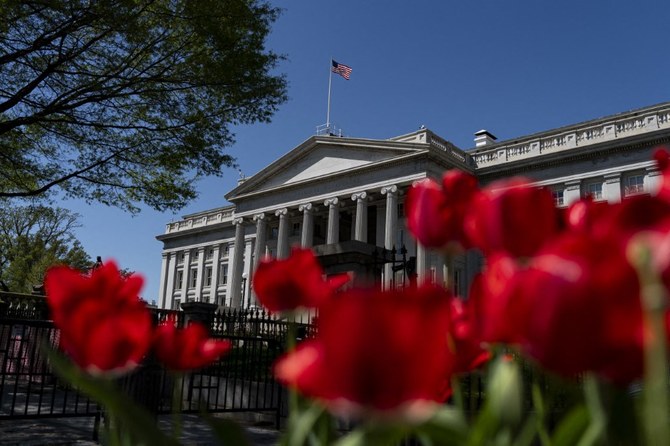
- Iran’s actions threatened stability in the Middle East and could cause economic spillovers
US Treasury Secretary Janet Yellen is preparing fresh sanctions on Iran in response to Iran’s attack on Israel, Axios reported on Tuesday, citing a copy of her remarks.
“Treasury will not hesitate to work with our allies to use our sanctions authority to continue disrupting the Iranian regime’s malign and destabilizing activity,” Yellen is prepared to say Tuesday, as per the Axios report.
“The attack by Iran and its proxies underscores the importance of Treasury’s work to use our economic tools to counter Iran’s malign activity,” she will further say, Axios reported.
Yellen said previously that Iran’s actions threatened stability in the Middle East and could cause economic spillovers, adding that the US would use sanctions and work with allies.
Afghanistan’s first female Olympian calls for Paris Games ban over Taliban’s rights record

- Friba Rezayee was 18 when she stepped onto the mat at 2004 Olympics in historic moment for her country
- Taliban say they respect women’s rights in line with their interpretation of Islamic law and local customs
GENEVA: Friba Rezayee, the first woman to represent Afghanistan at the Olympics, has been appalled by the treatment of women since the resurgence of the Taliban and is now campaigning for the country to be kept out of the Paris Games.
Rezayee, a judoka who competed at the 2004 Olympics in Athens, has called on the International Olympic Committee (IOC) to ban Afghanistan due to the Taliban’s human rights record. She has argued that under a such ban, Afghan women should still be allowed to participate as part of the IOC Refugee Olympic Team.
“Given tons and tons of evidence about the Taliban, about their brutal treatment of women and children, they are very dangerous,” Rezayee, who now lives in Vancouver, told Reuters.
“If the IOC allows them to enter the Olympics at the heart of Europe, in Paris in 2024, it’s very dangerous for the people.”
Zabihullah Mujahid, spokesman for the Taliban administration, declined to comment.
The Taliban — who say they respect women’s rights in line with their interpretation of Islamic law and local customs — have closed girls’ high schools and placed travel restrictions on women without a male guardian and restricted access to parks and gyms.
Asked to comment on Rezayee’s call, the IOC referred to a statement made last month by James Macleod, its Director of National Olympic Committee Relations and Olympic Solidarity.
Macleod said at the time that the IOC was in dialogue with Afghanistan’s National Olympic Committee (NOC) and sport authorities “with the aim to reverse the current restrictions on access to sport for women and young girls in Afghanistan.”
He said that although the IOC acknowledged different views on whether Afghanistan’s NOC should be suspended, it “doesn’t believe that isolation of the Afghan sporting community at this time is the right approach.”
Separately, the IOC said that athletes needed a refugee status confirmed by the United Nations refugee agency to be eligible for the IOC Refugee Olympic Team.
'STRONGER THAN MEN WITH GUNS'
Rezayee was 18 when she stepped onto the mat in Athens in a historic moment for her country. She was convinced her pioneering role would help advance women’s rights.
“I actually believed that we would only progress from here,” she said. “When I returned from Athens, I stayed in Afghanistan and I wanted to stay in Afghanistan. I continued my training because I saw the important changes it was making in every single girl’s life.”
But her hopes of seeing her countrywomen gain more rights were crushed when the Taliban seized power in August 2021.
“It feels like whatever I did to support women’s rights and gender equality back in 2004, it has been all undone by the IOC and by the Taliban and people who tolerate the Taliban,” Rezayee said.
In February, a United Nations expert described the Taliban’s disrespect for the rights of women and girls as “unparalleled in the world,” and said their takeover had “exacerbated a high prevalence of gender-based violence against women and girls.”
The IOC suspended Afghanistan’s NOC in 1999, and the country was barred from the 2000 Sydney Games. Afghanistan was reinstated after the fall of the Taliban, in time for Rezayee to compete in Athens.
Rezayee, who left Afghanistan in 2011 and settled in Canada, founded Women Leaders of Tomorrow, a non-profit that provides scholarships and education programs for Afghan women, including athletes.
The 38-year-old has received threats for her activism.
“I believe that my principles and the principles of human rights, women’s rights and women’s dignity are stronger than men with guns,” she said.



